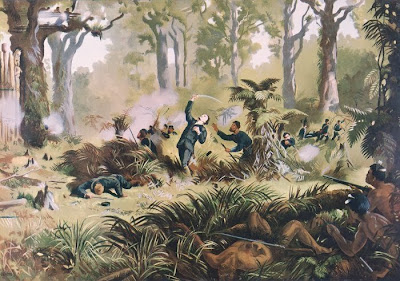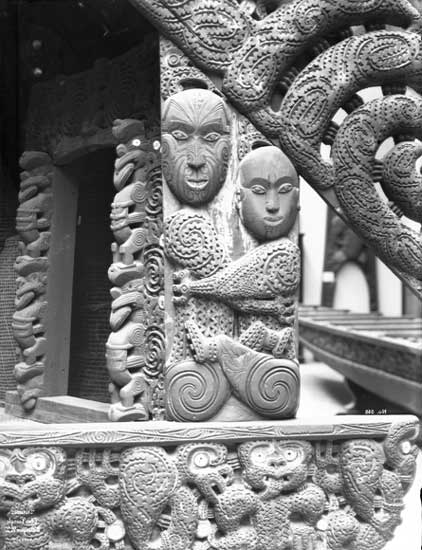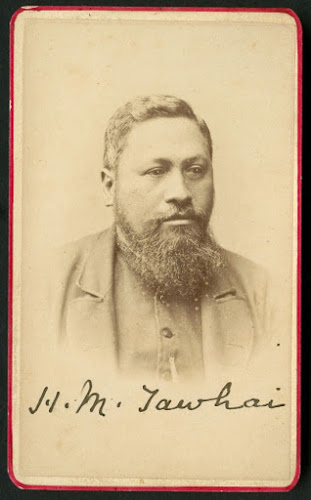'Slaying Without Scruple': An 1868 Call for Maori 'Extermination'
As the New Zealand Wars dragged on in the
late 1860s, the conflicts took on a harsher and more racially tinged edge. With
British imperial troops progressively withdrawn from New Zealand after 1865,
colonial troops and their Maori allies assumed sole responsibility for pursuing
the war instead. In July 1868 the Wellington
Independent newspaper called for no mercy to be shown Maori ‘rebels’ (see The Treaty of Waitangi Companion, p.
145). Its call for ‘rebels’ to be ‘slain without scruple’ was repeated in
equally shocking terms after colonial troops were routed at Te Ngutu-o-te-Manu in
September 1868.
 |
| Death of Major von Tempsky at Te Ngutu-o-te-Manu, 7 September 1868, C-033-006, ATL |
In a lengthy editorial that reflected on the deaths of Gustavus
von Tempsky and others at the hands of Titokowaru’s force, the newspaper called
for the ‘extermination’ of Taranaki Maori, declaring that:
There is no use blinking the ugly facts of the case. There are a certain number of natives on the West Coast who will never cease to rob and burn and murder. These men must be shown no mercy. They should be treated as wild beasts — hunted down and slain. Modern History teaches us that irreclaimable savages, who rendered colonization impossible and the lives of peaceful settlers insecure, have been, in the interests of society, exterminated...We are not advocating a war against the whole Maori race — than which no course could be more unjust or impolitic — but what we emphatically assert is this: there are certain hapus of tribes on the West Coast whose deeds of rapine and murder have made them the curse of the colony, and we would exterminate them. It does not matter what means are employed, so long as the work is done effectually. Head-money, blood-money, killing by contract — any or either of those means may be adopted, and we shall be content so long as the business is accomplished, and the colony rid of a terrible danger and a ruinous taxation. (Wellington Independent, 10 September 1868)
The newspaper’s views were hardly
uncontroversial and were condemned at the time as ‘disgraceful to an Englishman’.
But the very fact that the Wellington
Independent felt free to give vent to such crude prejudices showed just how
badly relations between Maori and Pakeha had sunk by this time.



Thank you:)
ReplyDelete